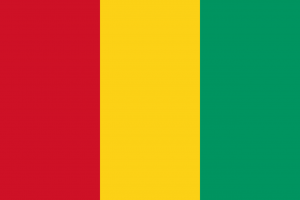Difference between revisions of "Language/Susu/Grammar/To-have"
Jump to navigation
Jump to search
| Line 1: | Line 1: | ||
[[File:Susu-Language-PolyglotClub.png|thumb]] | |||
== To have == | == To have == | ||
The na + personal pronoun + yi plays the role of the verb “ to have”. It conjugated as follows : | The na + personal pronoun + yi plays the role of the verb “ to have”. It conjugated as follows : | ||
{| class="wikitable" | {| class="wikitable" | ||
Revision as of 21:19, 30 May 2022
To have
The na + personal pronoun + yi plays the role of the verb “ to have”. It conjugated as follows :
| Tara na n yi | I have a brother /sister |
| Tara na i yi | You have a brother/ sister |
| Tara na a yi | He/She has a brother /sister |
| Tara na muxu yi | We have a brother/sister |
| Tara na won yi | |
| Tara na wo yi | You have a brother /sister |
| Tara na e yi | They have a brother/sister |
N.B. : Tara can be replaced by any noun :
Ex. :
- Banxi na n yi
I have a house
- xunya na n yi
I have a brother/sister
The negation
Forme B is the one most then used, as it is simpler.
| A | B |
| Tara mu na n yi | Tara mu n yi |
| Tara mu na i yi | Tara mu i yi |
| Tara mu na a yi | Tara mu a yi |
| Tara mu na muxu yi | Tara mu muxu yi |
| Tara mu na won yi | Tara mu won yi |
| Tara mu na wo yi | Tara mu wo yi |
